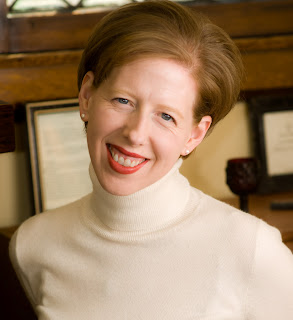Here is my Catholic Post interview with legendary runner Alberto Salazar about his memoir 14 Minutes. I reviewed 14 Minutes here. Alberto, thank you for being willing to answer all my questions. I’ll be watching the Olympics (along with the rest of the world) and see how your runners do.
Q. I really enjoyed reading 14 Minutes. Why did you want to write a book at this point in your life and career?
This certainly isn’t a quiet or contemplative period of my life. In fact, with the continuing success of the Oregon Project, and the London Olympics coming up, I’m busier than ever. Nonetheless, I felt called to write this book as a way to explore the meaning of my near death experience. Why was I spared? What is God’s plan for me? I don’t think you can grapple with those questions at your own convenience. Also, as my “14 minutes” dramatically showed me, next year, or even tomorrow, is never guaranteed.
Q. You write how you are wary of being held up as a Catholic role model, but I appreciate how you share your Catholic faith (and its ups and downs) openly. In fact, I read part of the book to my husband, who is a Catholic theologian, and he said approvingly, “He’s using technical language there!”
In particular, the prayer you say as a child (“Please, Mother, when I die, don’t let me be afraid. Bring me straight to heaven to your son Jesus”) runs as a theme throughout your various experiences. How would you say that your faith has matured over the years, while still retaining that child-like confidence?
My Catholic faith has definitely grown and matured over the years, but the progress of my faith has hardly followed a straight line. There have been peaks and valleys, cycles and seasons. For instance, as I write in the book, I don’t pray today with the same intensity and frequency that I did during periods of crisis in my younger life, but that doesn’t mean my faith has lessened, or that another intense cycle of prayer doesn’t await me in the future. I think following the faith of my father, mother, and forebears–the Roman Catholic Church as part of Cuban-American history–has helped me maintain some core of child-like confidence.
Q. You were without a heartbeat for 14 minutes after a massive heart attack in 2007. After that experience, are you afraid of death?
I don’t think it’s possible to completely lose your fear of death. I think my experiences have helped me somewhat in understanding death, and if you understand something you tend to fear it less.
Q. You write about coaching Olympic hopefuls, especially Galen Rupp. What’s the status of that, and will you be in London this summer for the Olympics?
We are lucky to have some of the finest distance runners in the world as members of the Nike Oregon Project. They include Mo Farah, a citizen of Great Britain, who joined our team two years ago, and Galen Rupp, a native of Portland, Oregon, who I have been coaching for more than a decade. Besides being ideal training partners, they are also great friends. Mo and Galen will both be running the 10,000 meters at the London Olympics, where they will be competitors rather than teammates. It will be very interesting to see how that plays out. Dathan Ritzenhein, another outstanding Oregon Project athlete, will also be running the Olympic 10,000 for the U.S.
Q. Tell us a little more about the Nike Oregon Project and where you see it going in the future.
The Nike Oregon Project started in 2001 with the goal of developing a select group of world-class U.S. distance runners. Over the last year we’ve added Mo Farah and one or two other non-U.S. athletes. I see that international reach continuing into the future, and U.S. distance runners–both from the Oregon Project and other training groups–continuing to reduce the gap between them and the great runners from the East African nations.
Q. You, and those you coach, are in a different category than non-competitive runners (like me). I ran a marathon, but my goal was finishing, as opposed to a time, and I’m grateful to live in a time when people like me are cheered when we finish. I was annoyed to read a New York Times article recently about how some fast runners resent or don’t consider the rest of us “real runners,” yet I recognize that different runners will have different goals. Any thoughts on that, or do you have any words of wisdom for non-competitive runners?
Well, now I’m just a regular, non-competitive runner myself, but the sport is still crucially important to me. I still consider myself a “real” runner, and any real runner knows that the mark of legitimacy is effort, not results. Also, as I write in the book, “real” runners depend on their daily workout as a time of prayer or meditation–it doesn’t matter if you run the marathon in 2:08 or 5:08.
Q. You worked with gifted sportswriter John Brant on this book. What was that process like, and do you think he was able to incorporate your voice fully into the book?
John and I had a great time working together on this book. He asked good questions, and we had some memorable conversations.
Q. Is there anything else you would like to add, or wish I that I would have asked?
Thanks for these insightful questions, and for your interest in 14 Minutes. I’m especially gratified by your focus on the faith journey portrayed in the book. I tried to talk about my spiritual life without preaching or apology.




